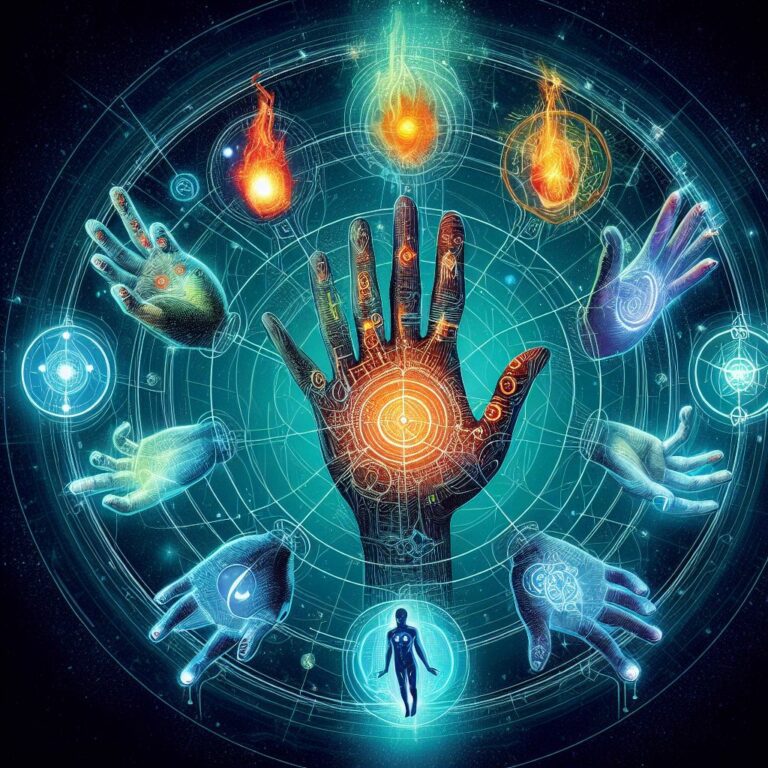Mongolian Birthmark Spiritual Meaning: Destiny’s Mark?
Have you noticed a grayish-blue marking on your lower back or bottom since birth? If so, you likely have a Mongolian birthmark, a special and meaningful marking that nearly 5% of people are born with. In this article, we’ll explore the deeper spiritual symbolism and meaning behind these unique birthmarks.
Here’s a quick interpretation:
A Mongolian birthmark is a grayish-blue skin marking that many cultures believe symbolizes destiny, luck, hidden talents, a mystical connection, or extraordinary traits possessed since birth. Though details vary cross-culturally, the prevailing view is that this special birthmark conveys auspicious meaning for the bearer’s path ahead.

What Is A Mongolian Birthmark?
A Mongolian birthmark, also known as a Mongolian spot or congenital dermal melanocytosis, is a benign, flat birthmark that is present at birth. It looks like a bruise or discoloration ranging in color from blue to gray or blue-brown.
These markings are caused by melanocytes, cells that produce melanin pigment. During fetal development, melanocytes migrate too deeply into the skin, causing the skin to take on a blue-gray coloration.
Mongolian spots are most commonly found at the base of the spine, lower back, or buttocks. They can range in size from a few centimeters to more than 20 centimeters wide. Over time, most Mongolian birthmarks fade, but around 1% remain visible lifelong.
Now that you know what defines a Mongolian birthmark, let’s unpack the spiritual symbolism and cultural lore surrounding these marks.
Some key facts about Mongolian birthmarks:
- A benign, flat birthmark present at birth
- Blue, blue-gray, blue-brown in color
- Caused by melanocytes embedded deep in skin
- Typically fade over time, 1% remain visible lifelong
- Most often on lower back or buttocks
Symbolic Meanings Around the World
Various cultures assign symbolic meaning to the Mongolian birthmark, viewing it as an indicator of destiny, luck, mystical abilities, and more. Here are some of the most prominent symbolic interpretations from different cultures:
Destiny and Life Purpose
In many cultures, the Mongolian birthmark indicates you are aligned with your life’s purpose and destiny. It serves as a reminder to manifest your destiny and accept the responsibility that comes with it.
Good Fortune
Another common symbolic meaning is that the mark brings good luck and fortune your way. The birthmark signals that things will naturally go well for you even when you attribute it to mere coincidence.
Extraordinary Traits
The rare, eye-catching nature of Mongolian spots causes many to see them as a sign that the bearer is extraordinary or stands out in some way. You’re special and have evidence right on your skin.
Mystical Connections
Some believe that a Mongolian birthmark means you have a divine connection to the spiritual realm. Perhaps you have intuitive gifts, a guardian angel watching over you, or greater access to mystical energy.
Untapped Gifts
Another interpretation is that your mark symbolizes untapped talents or latent potential within you. You may have abilities or a destiny you aren’t yet aware of.
Stepping Outside Comfort Zone
The appearance of a Mongolian spot can also act as encouragement to get outside your comfort zone. It signals you’re capable of achieving great things if only you allow yourself to embrace change and uncertainty.
Emotional Maturity
In some cultures, the mark conveys emotional wisdom and maturity. You likely have achieved groundedness, calm, and clarity of thought to help anchor you.
Magical Abilities
Finally, some believe the birthmark means you have innate magical gifts or mystical sight. You may be an intuitive empath, able to read energies and see underlying truths.
Cultural Myths and Lore
Beyond symbolic meanings, an array of myths explain the origins of the Mongolian birthmark across cultures:
Chinese Lore
Chinese lore states that the mark comes from the goddess Songzi Guanyin slapping or kicking the baby to hurry labor along.
Korean Folklore
Similarly, Korean legend claims the goddess Samsin Halmoi lays the marks by slapping newborn babies’ bottoms to hasten the birthing process.
African Beliefs
In some African cultures, the spot represents future prosperity, nobility, and leadership. The child has a great destiny awaiting them.
Indian Culture
The common belief in India is that Mongolian birthmarks bring good fortune and luck in all aspects of life. Marked children will attract abundant opportunities.
As you can see, Mongolian birthmarks bear profound symbolic meaning across cultures. These special markings are seen as highly auspicious, bestowing blessings upon their bearers. Maybe your Mongolian spot is reminding you to embrace your innate talents and step boldly in the direction of your brightest dreams!
FAQ
1. What causes a Mongolian birthmark?
Mongolian birthmarks are caused by melanocytes, pigment-producing cells, that migrate too deeply into the skin while the baby is still in the womb. The result is a benign discolored patch that resembles a bruise. They typically appear at the base of the neck or spine.
2. Do Mongolian spots go away?
In most cases, yes. The majority of Mongolian spots fade by the time a child is 3 to 6 years old. However, around 1% of people with the birthmark will carry it throughout life as the skin cells containing that extra pigment continue to renew.
3. What does it mean spiritually if my birthmark doesn’t fade?
Some believe that a lifelong Mongolian birthmark is a sign you have a special connection to the spiritual realm or extraordinary talents that set you apart. Its permanence suggests what it symbolizes – your divine destiny, luck, or hidden gifts – will stay with you as well.
4. How can I tap into the meaning behind my Mongolian spot?
Pay attention to the symbolic interpretations and cultural lore from your heritage or that resonate with you personally. Meditate on your talents and life’s purpose. Be receptive to any intuition or instincts that arise related to embracing your full potential.
5. Do all cultures have similar views on Mongolian spot meaning?
While interpretations vary slightly across cultures, the prevailing belief is that Mongolian spots represent good fortune, divine destiny, protection and something uniquely special about the marked individual. They generally carry positive connotations and signal blessings or auspicious events await.






